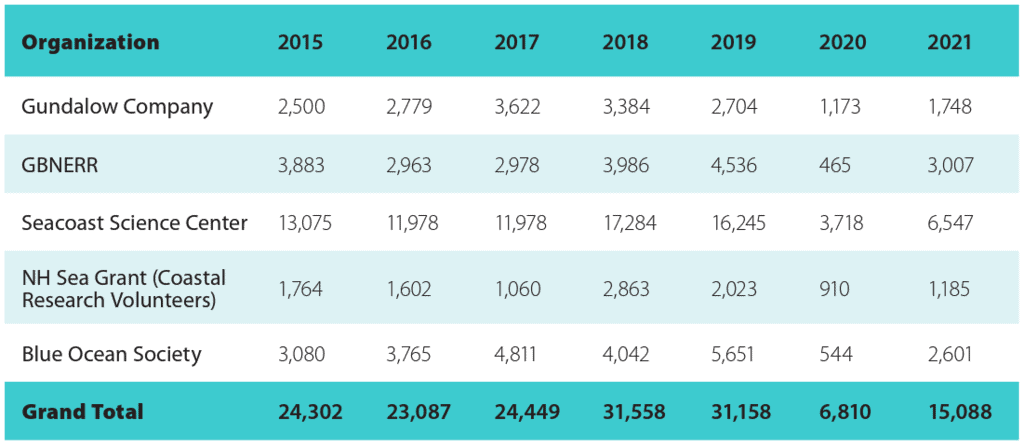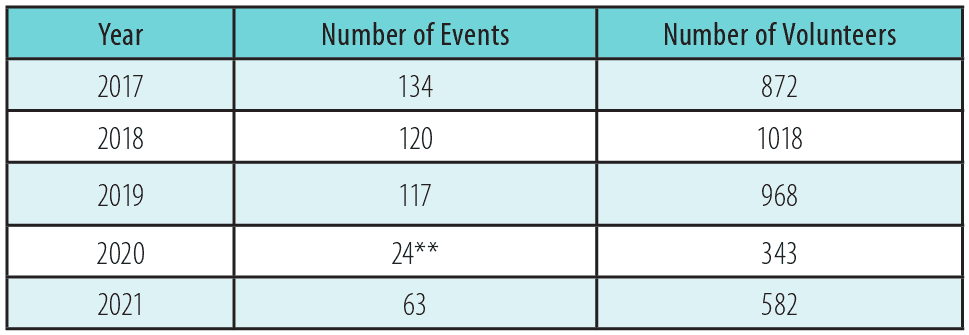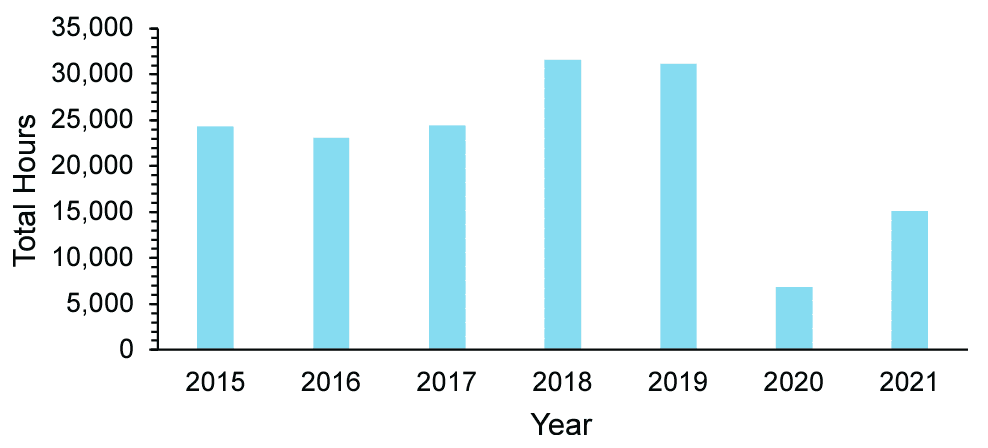Stewardship can be defined as the careful and responsible management of something entrusted to one’s care, and is a vital component of our community. Since data reporting began in 2015, stewardship activity showed a modest increase until the pandemic. Not surprisingly, there was a substantial decrease in stewardship hours in response to the COVID-19 outbreak (Figure 22.1, Table 22.1). Total volunteer hours in 2020 were 6,810, a 76% decrease compared to previous year’s average, and the total number of volunteers decreased by 64%. However, with the distribution of the vaccine in 2021, stewardship efforts are seeing a resurgence. Most recently, in 2021, our region saw a total of 15,088 volunteer hours, from 582 volunteers across 63 events, and 2022 is looking even more promising (Table 22.2).
As human populations grow and greater strain is placed on natural resources, stewardship in our communities becomes more and more critical. Not only does volunteer stewardship have a positive impact on the ecosystem, but it also benefits the region economically. The Bureau of Labor Statistics calculates the value of volunteer work in New Hampshire at $30.75 per hour. With a total of 109,063 hours logged from 2017 – 2021, the total economic value of these efforts was $3,353,676 in just these 5 years.
Those who are passionate about the environment and feel compelled to get involved in local efforts can access a list of upcoming events at NatureGroupie.org. This website is a hub for volunteer events and citizen scientist opportunities in New England. The site connects volunteers with various organizations and individuals and identifies projects that fit volunteer interests. From 2017 to 2021, there were 458 events made possible from the contributions of 3,783 volunteers. This is likely an underestimation as there are countless groups and citizens who volunteer that go unreported.
Acknowledgments and Credits
Nathaniel Gruen (UNH) with contribution from Abigail Lyon (PREP).


